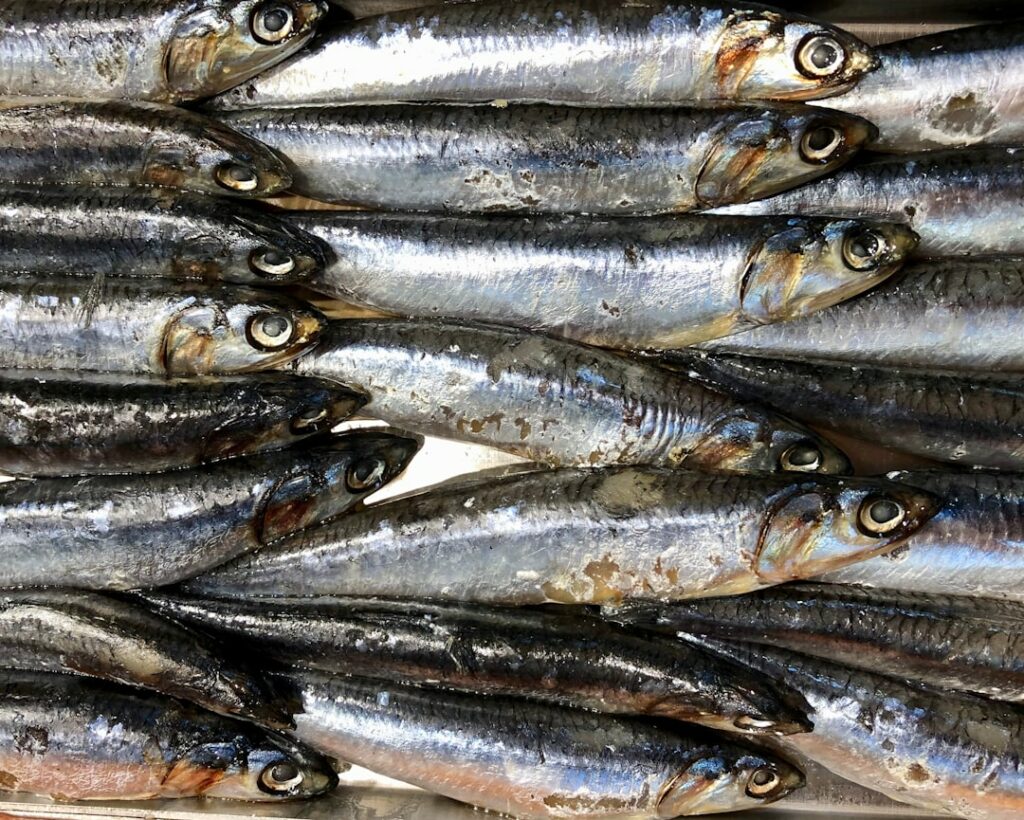The Mediterranean Diet has gained significant popularity in recent years, and for good reason. This eating pattern, inspired by the traditional diets of countries bordering the Mediterranean Sea, has been associated with numerous health benefits. Not only does it promote heart health and weight management, but it also has a positive impact on brain function. In this article, we will explore the relationship between nutrition and brain health, and how the Mediterranean Diet can support optimal cognitive function.
Key Takeaways
- The Mediterranean Diet has numerous health benefits, including improved brain function.
- Nutrition plays a significant role in brain function and can impact cognitive decline.
- Key components of the Mediterranean Diet for brain health include fruits, vegetables, whole grains, and healthy fats.
- Antioxidants and Omega-3 fatty acids found in the Mediterranean Diet can benefit brain function.
- The Mediterranean Diet can protect against age-related cognitive decline and reduce the risk of Alzheimer’s disease.
Understanding the Impact of Nutrition on Brain Function
It is well-established that nutrition plays a crucial role in overall health, but its impact on brain function is often overlooked. The brain is a highly metabolically active organ, requiring a constant supply of nutrients to function optimally. Nutrients such as vitamins, minerals, antioxidants, and omega-3 fatty acids are essential for maintaining healthy brain cells, promoting neuroplasticity, and supporting cognitive processes such as memory and learning.
A healthy diet is vital for optimal brain health. Research has shown that poor nutrition can lead to cognitive decline, impaired memory, and increased risk of neurodegenerative diseases such as Alzheimer’s disease. On the other hand, a nutrient-rich diet can enhance brain function, improve mood, and protect against age-related cognitive decline.
Key Components of the Mediterranean Diet for Brain Health
The Mediterranean Diet is characterized by high consumption of fruits, vegetables, whole grains, legumes, nuts, seeds, olive oil, and fish. It also includes moderate consumption of dairy products and red wine, while limiting intake of red meat and processed foods. These key components of the Mediterranean Diet provide a wide range of nutrients that support brain health.
Fruits and vegetables are rich in antioxidants, which help protect the brain from oxidative stress and inflammation. Whole grains provide a steady supply of glucose to the brain, which is its primary source of energy. Legumes are an excellent source of plant-based protein and fiber, which support brain health by stabilizing blood sugar levels and promoting healthy gut bacteria. Nuts and seeds are packed with healthy fats, vitamins, and minerals that nourish the brain. Olive oil, a staple of the Mediterranean Diet, is rich in monounsaturated fats and antioxidants that have been shown to improve cognitive function.
The Benefits of Antioxidants and Omega-3 Fatty Acids for Brain Function
Antioxidants play a crucial role in brain health by neutralizing harmful free radicals and reducing inflammation. Free radicals are unstable molecules that can damage brain cells and contribute to cognitive decline. Antioxidants found in fruits, vegetables, and other plant-based foods help protect the brain from oxidative stress and promote healthy brain aging.
Omega-3 fatty acids are another essential nutrient for brain function. These healthy fats are found in fatty fish such as salmon, mackerel, and sardines, as well as in walnuts, flaxseeds, and chia seeds. Omega-3 fatty acids are important for building and maintaining healthy brain cell membranes, promoting neuroplasticity, and reducing inflammation in the brain.
The Mediterranean Diet is rich in both antioxidants and omega-3 fatty acids. The abundance of fruits, vegetables, nuts, seeds, and fish in this eating pattern ensures an adequate intake of these brain-boosting nutrients.
How the Mediterranean Diet Protects Against Age-Related Cognitive Decline
Age-related cognitive decline is a natural part of the aging process. As we get older, our brains undergo changes that can affect memory, attention, and other cognitive functions. However, research has shown that the Mediterranean Diet can help slow down this decline and preserve cognitive function in older adults.
The antioxidants found in fruits and vegetables protect the brain from oxidative stress and inflammation, which are common contributors to age-related cognitive decline. The omega-3 fatty acids in fish and nuts support brain health by reducing inflammation and promoting neuroplasticity. The Mediterranean Diet’s emphasis on whole grains, legumes, and healthy fats also helps stabilize blood sugar levels and maintain a healthy weight, both of which are important for brain health.
The Role of the Mediterranean Diet in Reducing the Risk of Alzheimer’s Disease

Alzheimer’s disease is a progressive neurodegenerative disorder characterized by memory loss, cognitive decline, and changes in behavior. It is the most common form of dementia, affecting millions of people worldwide. While there is no cure for Alzheimer’s disease, research has shown that the Mediterranean Diet can help reduce the risk of developing this devastating condition.
The Mediterranean Diet’s emphasis on fruits, vegetables, whole grains, fish, and healthy fats provides a wide range of nutrients that support brain health and reduce the risk of Alzheimer’s disease. Antioxidants found in these foods help protect the brain from oxidative stress and inflammation, which are believed to play a role in the development of Alzheimer’s disease. Omega-3 fatty acids have also been shown to have a protective effect against this condition.
Incorporating Mediterranean Diet Principles into Your Daily Routine
Incorporating Mediterranean Diet principles into your daily routine doesn’t have to be complicated. Here are some tips to help you get started:
1. Fill half your plate with fruits and vegetables: Aim to include a variety of colorful fruits and vegetables in your meals. These nutrient-dense foods provide antioxidants, vitamins, minerals, and fiber that support brain health.
2. Choose whole grains: Opt for whole grain bread, pasta, rice, and cereals instead of refined grains. Whole grains provide a steady supply of glucose to the brain and are rich in fiber and other nutrients.
3. Include lean proteins: Choose lean sources of protein such as fish, poultry, legumes, and tofu. These foods provide essential amino acids that support brain function.
4. Use healthy fats: Replace saturated and trans fats with healthy fats such as olive oil, avocados, nuts, and seeds. These fats are important for brain health and can help reduce the risk of cognitive decline.
5. Limit processed foods and added sugars: Processed foods and added sugars can have a negative impact on brain health. Try to minimize your intake of these foods and opt for whole, unprocessed foods instead.
Mediterranean Diet Recipes for Brain Health
Here are some examples of Mediterranean Diet recipes that promote brain health:
1. Greek Salad: Combine chopped cucumbers, tomatoes, red onions, Kalamata olives, and feta cheese. Drizzle with olive oil and lemon juice for a refreshing and brain-boosting salad.
2. Baked Salmon with Lemon and Herbs: Season salmon fillets with lemon juice, garlic, fresh herbs such as dill or parsley, and a drizzle of olive oil. Bake in the oven until cooked through for a delicious and brain-healthy main course.
3. Chickpea and Vegetable Stew: Sauté onions, garlic, carrots, celery, and bell peppers in olive oil. Add canned chickpeas, diced tomatoes, vegetable broth, and your choice of herbs and spices. Simmer until the vegetables are tender for a hearty and nutritious stew.
Tips for Sticking to a Mediterranean Diet for Optimal Brain Function
Sticking to a Mediterranean Diet can be challenging at times, but the benefits for brain health make it worth the effort. Here are some tips to help you maintain this eating pattern:
1. Plan your meals: Take some time each week to plan your meals and make a shopping list. This will help you stay organized and ensure that you have all the ingredients you need to prepare healthy Mediterranean-inspired meals.
2. Cook at home: Cooking at home allows you to have full control over the ingredients you use and the cooking methods you employ. Experiment with Mediterranean flavors and recipes to keep things interesting.
3. Make it a family affair: Get your family or friends involved in meal planning and preparation. Cooking together can be a fun and social activity that helps you stay motivated and committed to the Mediterranean Diet.
4. Be mindful of portion sizes: While the Mediterranean Diet is known for its health benefits, portion control is still important. Be mindful of your portion sizes and listen to your body’s hunger and fullness cues.
5. Stay hydrated: Drinking enough water is essential for overall health, including brain function. Aim to drink at least 8 cups of water per day, and limit your intake of sugary beverages.
The Mediterranean Diet as a Pathway to Better Brain Health
In conclusion, the Mediterranean Diet is not only a delicious and enjoyable way of eating but also a powerful tool for promoting brain health. Its emphasis on fruits, vegetables, whole grains, legumes, nuts, seeds, olive oil, and fish provides a wide range of nutrients that support optimal cognitive function. By incorporating Mediterranean Diet principles into your daily routine and making healthy food choices, you can nourish your brain and reduce the risk of age-related cognitive decline and neurodegenerative diseases such as Alzheimer’s disease. Remember, what you eat has a profound impact on your brain health, so choose wisely and prioritize your well-being.
If you’re interested in improving your brain function, you may also want to check out this article on «Unlocking Your Brain’s Full Potential: Tips to Increase Intelligence and Memory.» It provides valuable insights and practical tips to enhance your cognitive abilities and boost your memory. From memory techniques to brain-boosting foods, this article offers a comprehensive guide to help you unlock your brain’s full potential. Don’t miss out on these valuable tips! Read more here.
FAQs
What is the Mediterranean diet?
The Mediterranean diet is a way of eating that is based on the traditional foods and drinks of the countries that surround the Mediterranean Sea. It emphasizes whole, plant-based foods, healthy fats, and lean proteins.
What are the benefits of the Mediterranean diet?
The Mediterranean diet has been linked to a number of health benefits, including improved heart health, weight loss, and better brain function. It may also reduce the risk of certain chronic diseases, such as diabetes and cancer.
How does the Mediterranean diet improve brain function?
The Mediterranean diet is rich in nutrients that are important for brain health, such as omega-3 fatty acids, antioxidants, and B vitamins. It may also reduce inflammation in the brain, which can contribute to cognitive decline.
What foods are included in the Mediterranean diet?
The Mediterranean diet includes a variety of whole, plant-based foods, such as fruits, vegetables, whole grains, nuts, and legumes. It also includes healthy fats, such as olive oil and fatty fish, and lean proteins, such as chicken and turkey.
What foods should be avoided on the Mediterranean diet?
The Mediterranean diet emphasizes whole, unprocessed foods and limits processed and refined foods, such as sugary drinks, white bread, and processed meats. It also limits saturated and trans fats, such as those found in butter and fried foods.
Is the Mediterranean diet suitable for everyone?
The Mediterranean diet is generally considered a healthy way of eating for most people. However, it may not be suitable for individuals with certain medical conditions or dietary restrictions. It is always best to consult with a healthcare professional before making any significant changes to your diet.





